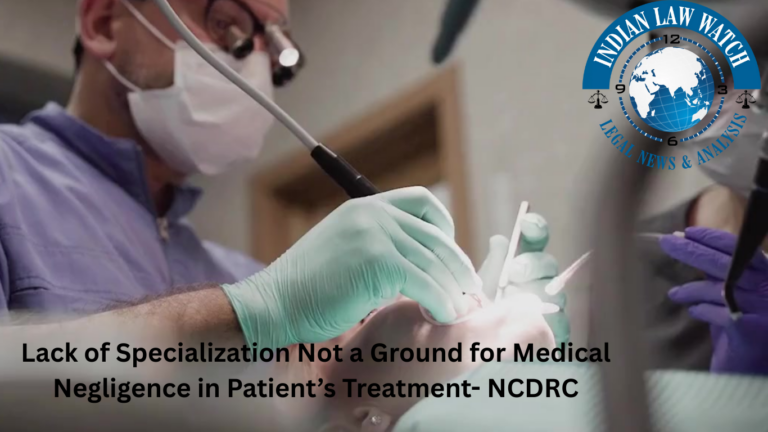

The Indian Medical Association (IMA) is a voluntary national organization comprising doctors practicing modern medicine in India. It advocates for the interests of doctors and the welfare of the broader community. When the IMA charter presents a set of demands before an election, it typically aims to shape public policy and healthcare-related legislation. In March 2024, the association submitted its list of demands to Dr. Mansukh Mandaviya, the Union health minister, and planned to distribute copies to all state and union territory health ministers.
Grey Areas raised in the Charter
A. Integrative Medicine and the Concern
The assertion labeling integrative medicine as a threat may arise from apprehensions surrounding the integration of various medical systems, including allopathy, homeopathy, Ayurveda, among others. The IMA might argue that the integration of these systems could jeopardize healthcare standards, pose risks of harm to patients due to conflicting treatments, or undermine the scientific rigor of evidence-based medicine. The IMA’s position may lead to a debate on the balance between traditional and modern systems of medicine, the need for scientific validation of treatments, and the regulatory mechanisms to ensure patient safety and professional accountability.
It is important to note that the government of India has also been promoting traditional systems of medicine through the establishment of the Ministry of AYUSH (Ayurveda, Yoga & Naturopathy, Unani, Siddha, and Homeopathy) and has been encouraging research and integration of these systems into the general healthcare framework.
From a legal perspective, the practice of medicine in India is regulated by various laws and regulations, including the Indian Medical Council Act, 1956, and the National Medical Commission Act, 2019, which replaced it. These laws set the standards for medical education and practice, and they aim to ensure the quality and ethics of medical professionals.
In summary, while the IMA’s charter of demands is a policy advocacy tool, any changes to the legal framework governing medical practice in India would require legislative action and careful consideration of the implications for healthcare quality and patient safety.
B. Ayushman Bharat
Dr. Asokan’s statement reflects a perspective on the implementation of the Pradhan Mantri Jan Arogya Yojana (PM-JAY)—Ayushman Bharat, which is a national health insurance scheme aimed at providing free healthcare services to the poorest and most vulnerable families in India. His viewpoint suggests that while the scheme is indeed beneficial to those under the Below Poverty Line (BPL), its effectiveness could be enhanced by involving the private sector more directly.
The argument presented is that government hospitals are already equipped with the necessary facilities and mechanisms to provide cashless treatment to beneficiaries of the scheme. Dr. Asokan seems to suggest that the current system, which relies heavily on government hospitals, may not be fully efficient or beneficial to patients. He implies that the funds allocated under PM-JAY could be better utilized if a strategic purchasing system were in place, allowing beneficiaries to access services through private hospitals as well.
Strategic purchasing refers to the ways in which funds are allocated to healthcare providers to obtain the best value for money and improve health outcomes. By enabling strategic purchasing from private hospitals, the scheme could potentially offer beneficiaries a wider choice of healthcare providers, reduce wait times for services, and improve the quality of care.
However, this suggestion would require careful consideration of various factors, including the regulation of private healthcare providers, ensuring equitable access to high-quality care, preventing potential overcharging or unnecessary treatments, and maintaining the scheme’s financial sustainability.
The legal and policy implications of such a shift would involve amendments to the existing framework of PM-JAY, negotiations with private healthcare providers, and possibly the development of new oversight mechanisms to ensure that the scheme’s objectives are met without compromising the quality of care or financial protections for the beneficiaries.
C. Status of Medical Professionals
As regards the status of the medical professionals, the Indian Medical Association wants the Union government and the National Medical Commission to refrain from the proposed National Exit Test for medical graduates passing out of Indian institutions.
The medical association charter wants the government of India to enact a strong Act to protect the medical professionals and institutions in place of the current Hospital Protection Act as any of the 23 state hospital protection laws has not brought any solace to the doctors’ community from violence by hooligans. The association wants the government to declare hospitals and healthcare institutions are safe zones.
Another significant demand included in the Charter is about exemption of small and medium hospitals with 50 beds from the purview of the Clinical Establishment (Registration and Regulation) Act 2010. According to the IMA president, the act mandates so many parameters for running a hospital and it is difficult for all the institutions to comply with all those norms. He said the Kerala government has in principle agreed to exempt small hospitals from the purview of the Act.
IMA has also wanted the government to increase the number of medical professionals in all the government hospitals in the country based on the population.
Ref.: Official Publication of IMA





